Linguistic Convergence Laboratory invites applications for postdoctoral research positions
Linguistic Convergence Laboratory invites applications for postdoctoral research positions in the field of language contact; language corpora; linguistic typology; sociolinguistics; languages of the Caucasus; languages of Russia.
In 2021, members of the Linguistic Convergence Laboratory published three articles on the Russian language in Dagestan
Dagestan is a relatively new territory for the spread of the Russian language. At the end of the 19th century, very few people spoke Russian here. In addition to indigenous languages, which Dagestan is very rich in (linguists count more than forty languages in this small territory), local people spoke Azerbaijani, Georgian, Chechen and Arabic. But there has never been a language common for all residents of Dagestan (the language of interethnic communication or lingua franca). Russian became the first such language for Dagestan.
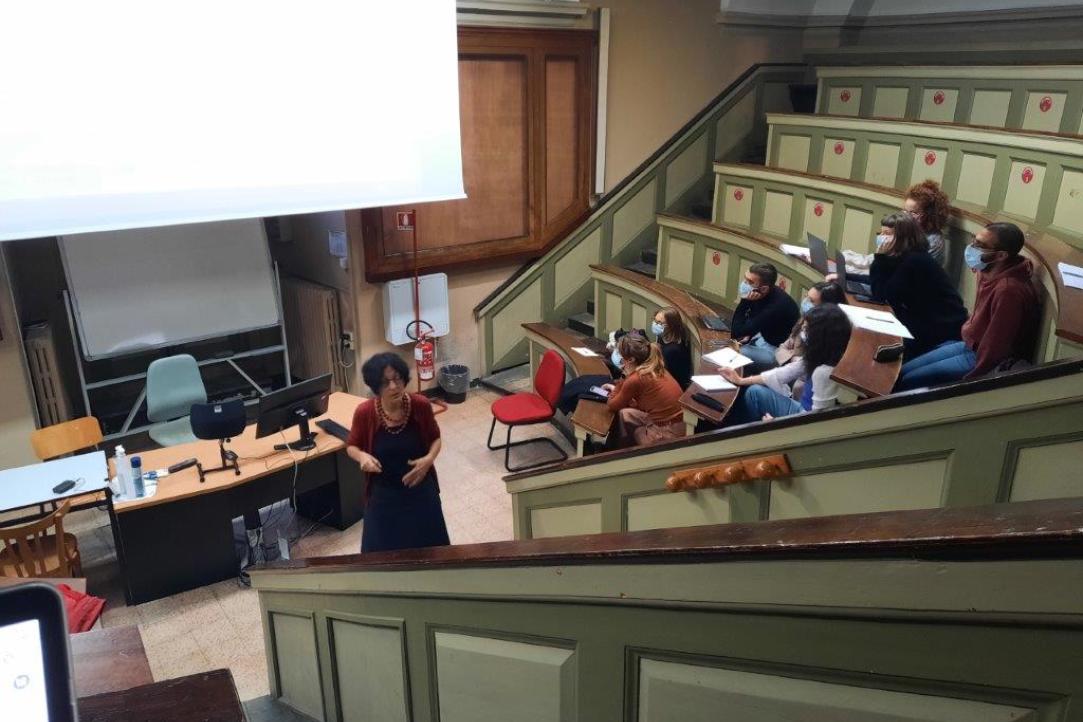
Members of the Linguistic Convergence Laboratory Michael Daniel and Nina Dobrushina gave two lectures each at the University of Pavia
On November 3-5, the members of the Linguistic Convergence Laboratory Michael Daniel and Nina Dobrushina gave two lectures each at the University of Pavia.
The International Linguistic Convergence Laboratory has launched a new website with resources
One of the tasks of the International Linguistic Convergence Laboratory is the creation of new open electronic resources dedicated to the minor languages of Russia, Russian dialects and contact varieties of Russian speech. For more than four years, these resources have become so abundant that the laboratory had to acquire its own server and create a special website where all the resources are conveniently located.
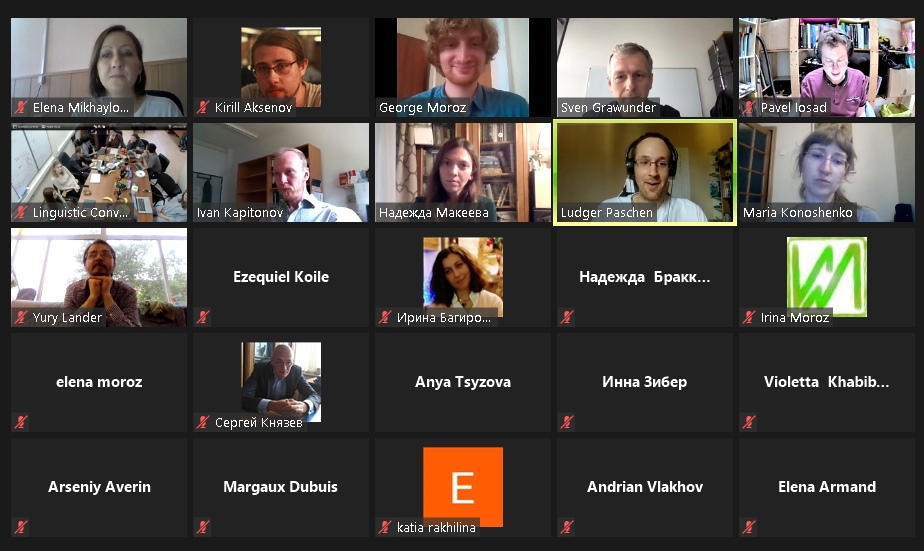
George Moroz successfully defended his PhD thesis
George Moroz, research fellow of the Linguistic Convergence Laboratory, defended his PhD thesis entitled «Some Questions of Circassian Segmental and Suprasegmental Phonology and Phonetics».
.png)
The School of Linguistics hosted a series of lectures on the foundations of language evolution by the member of Linguistic Convergence Laboratory Damian Blasi
From February 4 to March 20, the School of Linguistics hosted a series of lectures on the foundations of language evolution. The course was read by Damian Blasi, the member of Linguistic Convergence Laboratory, an author and co-author of works on fundamental problems in creole linguistics, linguistic symbolism and the history of linguistic diversity. In his lectures Damian Blasi considered both the main aspects of the theory of the language evolution, as well as more narrow topics, such as the structure of animal communication systems and their differences from human language, the time of the speech appearance in humans, biological and genetic foundations of language ability, multilingualism, and models of linguistic evolution.
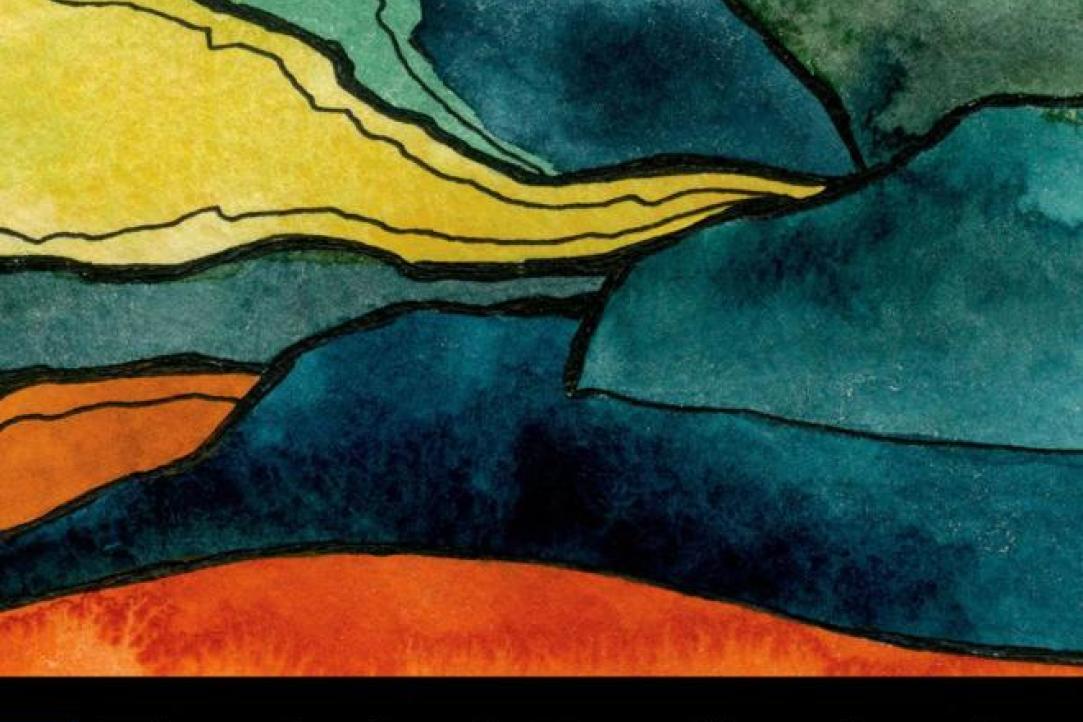
Members of the Linguistic Convergence Laboratory contributed chapters to new Oxford Handbook of Languages of the Caucasus
A new Oxford Handbook dedicated to the languages of the Caucasus appeared this month. It contains several contributions from members of the Linguistic Convergence Laboratory.
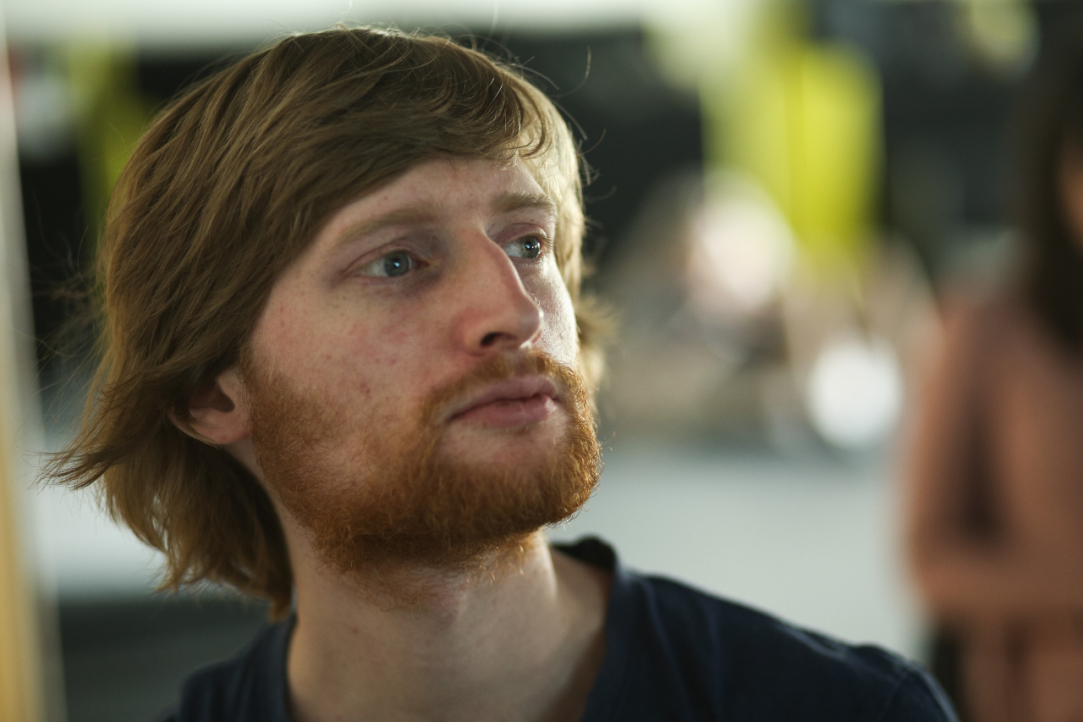
Lingtypology – the package for linguistic mapping and typology – is four years old.
Until four years ago there was no simple tool for linguists to mark a set of points on a map with different colors. A point corresponded to a language, and its color corresponded to a linguistic feature of the language. This inspired George Moroz, of HSE’s Linguistic Convergence Laboratory and School of Linguistics, to create a new software product that turned out to be very popular: lingtypology.
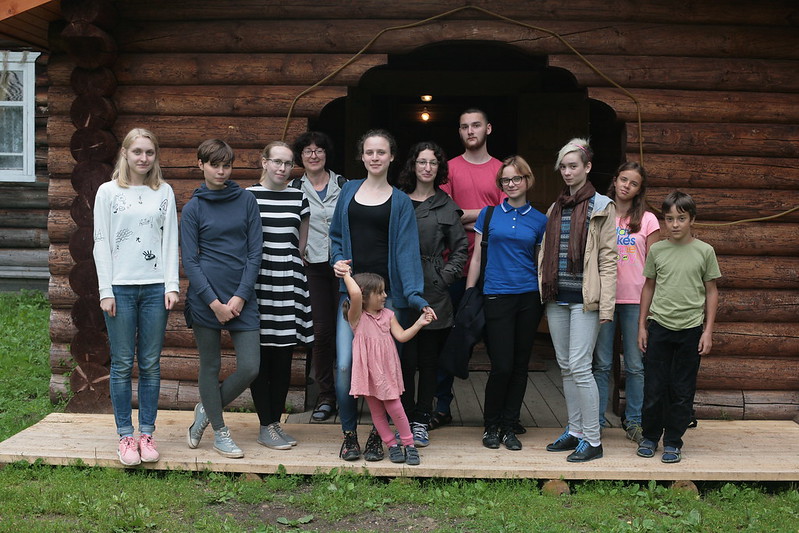
An article by members of the Linguistic Convergence Laboratory was published in the journal “Language variation and change”
From a northern village to an academic article, or How many linguists do you need to describe variation in Russian dialect?
New International Summer School on Areal Linguistics and Languages of Russia
The Linguistic Convergence Laboratory and the School of Linguistics are organizing an International Summer School on Areal Linguistics and Languages of Russia.
